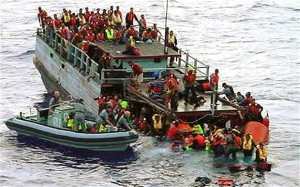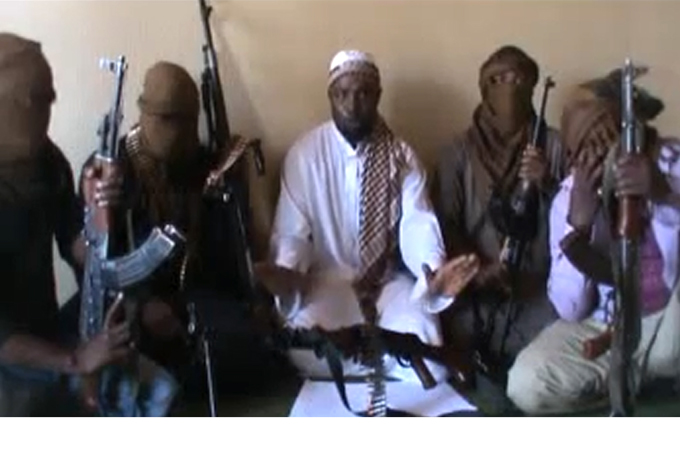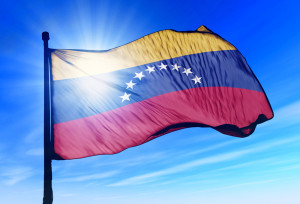Dear Deeply Readers,
The diplomatic drama that unfolded over Syria this week will be just a footnote in history. But in these days of disintegrating conditions on the ground, it serves as a snapshot of global paralysis and geopolitical dysfunction that prevents any degree of accountability and containment in Syria’s conflict.
This round of debate began when France, backed by dozens of countries, made a push to refer Syrian war crimes to the International Criminal Court. But as the resolution moved to a vote in the Security Council on Thursday, Russia and China swiftly blocked it. By the BBC’s count, it was the fourth time those two states have vetoed action by the U.N. Security Council, protecting their strategic allies in the government of President Bashar al-Assad. That leaves Assad’s opponents to look for strenuous alternatives. As the New York Times explains, they can now look to set up a special tribunal, outside the remit of the ICC, or pursue a relatively rare “Uniting for Peace” resolution at the U.N. General Assembly, which would bypass a deadlocked Security Council.
It’s not the only case study in the need to work around international rules. This week the U.N. Secretary-General Ban Ki-moon made the case that it’s time to sideline Syrian state sovereignty in order to deliver aid to rebel-held areas without regime consent. The government is “failing in its responsibility to look after its own people,” Ban wrote in a confidential report, cited by the New York Times. Government blockades have reportedly left 241,000 people without access to food, with millions more lacking health care and basic services.
The accelerated debate over how to bend the norms to benefit Syria’s people comes alongside an escalating battle on the ground – a surge in fighting and bombings that lifted Syria’s death toll to at least 162,000 people, a spike of roughly 10,000 casualties over the past two months. The British-based Syrian Observatory for Human Rights, which keeps the count, estimated that pro-regime troops have lost more fighters than rebel forces – part of the high cost of maintaining a relative upper hand, in what has devolved into a turf war in each Syrian province.
On Sunday al-Qaida-linked Jabhat al-Nusra launched four suicide bomb attacks on army positions, while announcing it would create “an arms factory” to supply its fighters in Syria. Last week Assad troops lost their chief of air defense forces when Lt. Gen. Hussein Ayoub Ishaq was killed in battle. Elsewhere, a mortar shell hit an Assad election rally in Deraa, killing an estimated 21 people. The bombing of Aleppo’s Carlton Citadel Hotelearlier this month is still providing rebels with a palpable morale boost, says one of the opposition’s most wanted commanders. He revealed himself to the Guardian as the architect of the Carlton attack, describing the ongoing campaign to tunnel under the city of Aleppo and strike government targets with underground explosives.
All this at a time when Syria’s military is, generally speaking, on the up in the fight. The Syrian army launched a counteroffensive against rebels in Deraa, who have been fighting each other in a spate of rivalrous infighting. Back in Aleppo, government troops repelled rebel forces who have been fighting to take control of a landmark prison – an offensive that has lasted for roughly a year (we’ve covered how prison inmates have languished in the shadows of the fight).
Outside prison, civilians are languishing in broad daylight. Areas of Aleppo have been without power and water for weeks; some Damascus suburbs have also gone dark. Deir Ezzor is feeling a heavier hand of Sharia law, as we documented in one case of a woman’s wedding celebrations, interrupted. And according to a new report, Syria is now the world’s biggest crisis of internally displaced people, or IDPs. More than three years into the conflict, roughly 9,500 Syrians are being displaced each day – approximately one family per minute becoming refugees on their own home soil. It’s proven to be a scale of disaster that the world is either unwilling or unable to handle.
Highlights from Syria Deeply:
As Rebels Fight Each Other, Government Heightens Offensive on Southern Front
In Deir Ezzor, Rebels Battle for More Than Just Oil
In Deir Ezzor, Sharia Law Interrupts a Woman’s Wedding
Surge in Fighting and Bombings Lead to Sharp Increase in Death Toll
Weeks of Power Cuts Hit Damascus Suburbs
One on One: Kareem Shaheen, Reporter, the Daily Star
Syria Is Now the World’s Biggest IDP Crisis
Headlines from the Week:
Washington Post: U.S. Inaction on Syria Helped Make it Hell on Earth
Frontline: For Syrians Fleeing Violence, Scant Refuge or Relief
New York Times: Syrian Fighting Gives Hezbollah New but Diffuse Purpose
Reuters: No Sign Syria Is Handing Over Chemical Weapons
Reuters: U.S. Steps Up Scrutiny of American Fighters in Syria
Reuters: Syrian al-Qaida at Foothills of Israeli-held Golan
BBC News: Anthony Loyd: Kidnapped and Beaten in Syria




